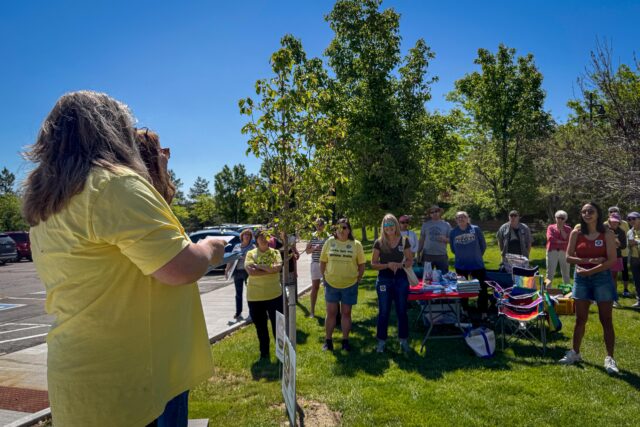Douglas County’s Pivotal Vote on Home Rule Sparks Debate
The residents of Douglas County are gearing up for a crucial decision as they consider the adoption of home rule in an upcoming special election. With ballots due next week, the implications of this move have ignited intense discussions among community members, raising varying opinions about what such a change would entail for this rapidly expanding region in Colorado.
Local Control at Stake
On March 28, the county’s three commissioners unanimously voted to place the home rule question before voters in a special election scheduled for June 24. They assert that gaining home rule status will empower the county to greater independence from the Democratic-led state government and enhance their ability to challenge state legislation that they find counterproductive.
“Every year, we see the state legislature imposing mandates on local issues, and the people of Douglas County are noticing this encroachment,” stated Commissioner George Teal in an interview with CPR News. The local sheriff has voiced support as well, claiming that it would positively affect public safety.
Community Concerns Rise
Contrarily, some residents express skepticism regarding the promises associated with home rule, questioning whether it can achieve the desired outcomes. Critics argue that many are still unaware of the implications tied to this governmental shift.
Kelly Mayr, a member of the grassroots group “Stop the Power Grab,” criticized the transparency surrounding the proposal, stating, “Most of the community has no idea about this development. They are altering our government, and we are left in the dark.”
Understanding Home Rule
Home rule aims to grant local governments greater authority over specific matters like zoning and employment practices. In Colorado, both cities and counties can establish home rule, but the scope of powers differs significantly. Currently, aside from Denver and Broomfield, only Weld and Pitkin counties enjoy home rule status, a rarity in the state.
Douglas County’s push marks a significant moment, as the last attempt to achieve this status dates back several decades. In the special election, residents will face two questions: whether they approve the home rule status and, if successful, which candidates will be chosen to serve on the 21-member commission responsible for drafting the governance charter.
An Emotional Debate
During a town hall meeting held in late May, tensions escalated, with some community members expressing frustration over the county attorney’s perceived one-sided presentation of the home rule advantages. “It seemed like a sales pitch rather than an informative session,” voiced Kevin Duffy, a Castle Rock resident with 30 years of community ties.
| Category | Details |
|---|---|
| Election Date | June 24, 2025 |
| Key Questions | 1. Support for home rule? 2. Selection of charter commission members? |
| Home Rule Counties in Colorado | Weld, Pitkin (plus Denver and Broomfield as unique cases) |
Opposition Voices Concerns
Critics have filed lawsuits in attempts to block the measure, claiming that discussions around the proposal violated open meeting laws. Although a judge dismissed their request for a preliminary injunction, dissenting voices continue to raise questions about the motives behind the commissioners’ actions and the potential financial burden of a special election estimated to cost nearly $500,000.
Former Commissioner Lora Thomas, part of the litigation efforts, remarked, “I don’t fully understand the necessity behind pursuing home rule so quickly without comprehensive community insight.”
Implications of Home Rule
The debate surrounding Douglas County’s potential home rule status carries significant implications for local governance, particularly as it contends with state authority. As discussions continue within a politically charged environment, the election’s outcome may not only shape county operations but also reflect broader sentiments about autonomy and local representation in a changing political landscape.














